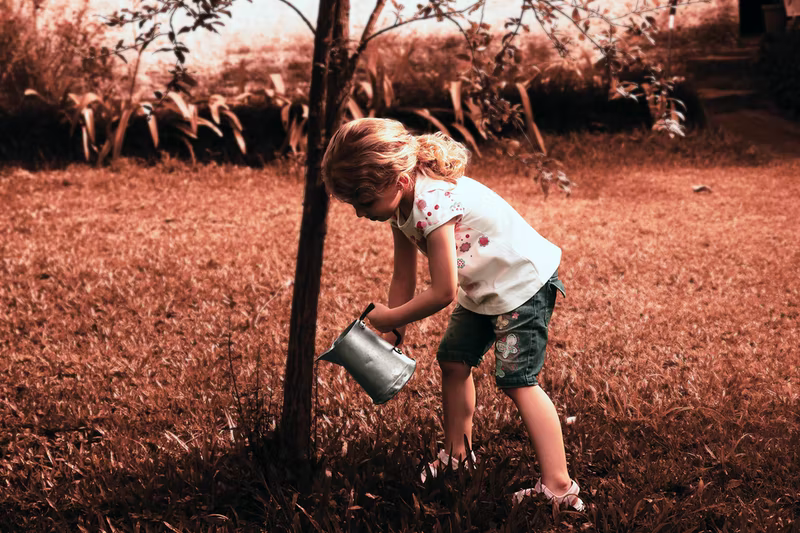The 3 R's are just not Sustainable!
- Kirsty Knowles
- Apr 29, 2021
- 3 min read
Attitudes to sustainability in schools are changing and the rate of this change is accelerating. Children in primary settings are already generating creative ideas and demonstrating active interest in helping adults ensure they grow up in a world that is protecting their future, and adolescence is the pivotal time for developing a student’s “executive function skills” (developingchild.harvard.edu, 2012).

In my experience, pupils are bursting with imagination and ambition when passionate about the change(s) they want to actualise for the planet they inhabit. They seem uninhibited by barriers and their eagerness to get going in the here and now is palpable. Their energy needs to be celebrated and harnessed for the sustainability of enriching and progressive education, which can be profoundly manifested in them being agents for change in community contexts for a global landscape.
A new educational paradigm based on sustainability “Civic engagement is key for sustainability” (kdp.org, 2011). We need imagination to go beyond and fuse Reading, Writing and Arithmetic into ambitious cross-curricular lesson planning to reveal to our students the interdependence of the environment, economy and society for reaching the depths of understanding required for shaping a better world. Generation Z is the future and so have an inherent interest in becoming thoughtful and proactive citizens in the process. This inclusive approach enables pupils to do the work themselves.
Bringing about change
Research and evidence-based findings prove that when students identify with a real world problem they exercise metacognitive strategies as their passion and commitment for problem-solving drives them to achieve longer term outcomes (developingchild.harvard.edu, 2012). Sustainability is the lens through which children and indeed, education institutions can examine local and wider reaching topics. In this way, connections between environmental integrity, social equity and economic prosperity can be appreciated as codependent and interconnected across the world. We can shift perspective for integrative learning for developing awareness around sustainability, and for understanding and skills to tackle its related dilemmas. Ethical leadership for adults and aspirational ethical leadership for students. Nourishing and challenging sustenance is required to feed children’s appetite for learning, and it is for us as educators to facilitate opportunities for their authentic discoveries of the world around them, and provide platforms upon which they can make the difference they determinedly champion.
Teacher training
Parallels can be drawn for the benefit of sustaining educators. By making a career in teaching more sustainable and creating learning around sustainability for students, education can support and initiate efforts for a ‘greener’ future. Protecting the professionalism and wellness of educators enables them to do the vital work that brought them to teaching in the first place, ultimately benefitting students. My interpretation of Maslow’s Hierarchy of Needs (1943) reminds us to ensure the basics are met for educators and pupils, and sustainability is at the heart of creating humane conditions for teaching and learning.
Ecological sustainability views human beings as part of nature and Orr (1991) encourages us to use nature as a model for growth. I believe we can synergise growth and sustainability if we lead, teach and model the importance of taking care of our precious resources for ‘greener’ growth.
Sustainability at the core of education

We need to rethink our teaching and learning objectives to deconstruct the mystery and sometimes overly complicated definitions of sustainability for all students (and adults) to grasp. And in doing so, create an interdisciplinary curriculum with hands-on activities in place-based and service contexts. Helping to improve their school, neighbourhood and planet will give students life meaning and their worldview will expand as global issues are tackled from organic purposeful work. Sustainability will no longer be an abstract concept but instead as tangible and expected in their school day as the 3 R’s. Ideally, sustainability will be embedded into the culture, ethos and values of education and the 3 R’s will form part of a unified approach, which given the limits of the earth, will be unshakeable.
Kirsty Knowles
Founder/Owner of Think Being®
Accredited Coach, Consultant, and Writer illuminating humanistic change for People, Leadership, Culture & Education
To connect or find out more about me and my work: https://www.linkedin.com/in/kirsty-knowles-0404/ or https://www.linkedin.com/company/think-being or kirsty@thinkbeing.co.uk
References
Center on the Developing Child. (2012). Executive Function (InBrief).
From: www.developingchild.harvard.edu/resources/what-is-executive-function-and-how-does-it-relate-to- child-development/
Farber, K. (2020). www.edutopia.org/article/7-ways-make-teaching-more-sustainable-profession
Maslow, A. (1943). A theory of Human Motivation. Psychological Review, 50, 370-396.
Orr, D. (1991). Ecological Literacy: Education and the Transition to a Postmodern World. New York: State University of New York Press.
Strategies for Education for Sustainability.
.png)
Comments